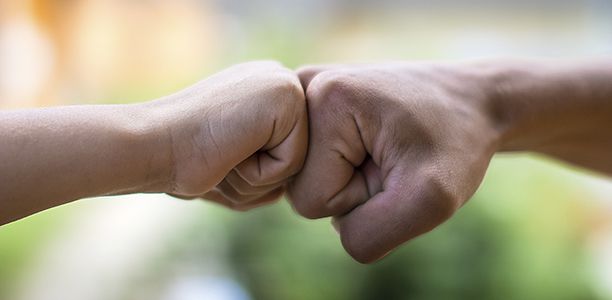Fathers will be critical to the successful treatment of their sons’ aggressive and antisocial conduct in a UNSW-led project, which has today been awarded a $2.6 million grant from the Movember Foundation.
“Disorders of violence, aggression and antisocial behaviour occur most commonly in males and often begin early in life. If left untreated, they signal a high-risk factor for mental disorders in adulthood,” says UNSW’s Professor Mark Dadds, who will lead the ‘Like Father Like Son’ project.
“But if conduct problems are caught early they can be treated relatively inexpensively using evidence-based parent-training programs. And outcomes are vastly improved when fathers participate.”
The project is one of three Movember grants awarded to UNSW reseachers. The largest – $2.9 million over three years – is led by UNSW’s Dr Sam Harvey and delivered through the Black Dog Institute. It will see around 60,000 Australian men in high-risk workforces receive specialised and interactive mental health care via a proven yet anonymous source – their mobile phone.
The Movember Foundation is a leading global organisation committed to changing the face of men’s health. It challenges men to grow moustaches during the month of November to raise funds and awareness for prostate cancer, testicular cancer and mental health.
Jeremy Macvean, Movember’s Asia Pacific Director, said the partnership enabled the Foundation to reach men and boys across Australia from all walks of life.
“The investment in this project shows how important the support of the Movember community is to raise funds and awareness for men’s health.”
Professor Dadds is Director of the UNSW Child Behaviour Research Clinic in the School of Psychology, which has developed a treatment approach that enlists parents as therapists and trains them to manage their child’s difficult behaviours.
This evidence-based treatment, which requires about six to 12 sessions of one hour per week, featured earlier this year in a three-part documentary on ABC TV, called Kids on Speed?
The Movember Foundation will provide $2,634,400 over three years to Professor Dadds’ team. The project, Like Father Like Son: A National Approach to Violence, Antisocial Behaviour and the Mental Health of Men and Boys, will involve other researchers from UNSW as well as from the University of Sydney, the Australian Catholic University and the Royal Children’s Hospital in Melbourne.
There are many reasons why fathers are much less likely than mothers to be involved in mental health therapy for their children, says Professor Dadds.
“Many clinics only open 9 to 5 and this is hard for working people. Some men may also not feel comfortable doing the training, or feel it is women’s business.
“Other men may be struggling with their own health and psychological problems and the program needs to address these in order to help them be more effective parents.”
The Movember funding will help equip mental health workers with the skills to customise interventions to meet each family’s unique needs. “The more severe the problems and the greater the range of problems, the more the treatment needs to be tailored for the child and the family,” says Professor Dadds.
The UNSW team will also use cutting-edge multimedia technology to develop web-based programs that fathers can access on all digital devices to learn advanced parenting strategies to manage their child’s aggression and antisocial behaviour.
(Source: UNSW)










